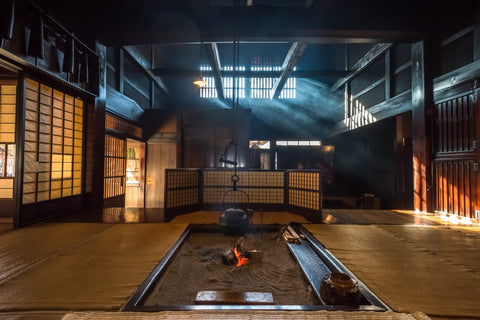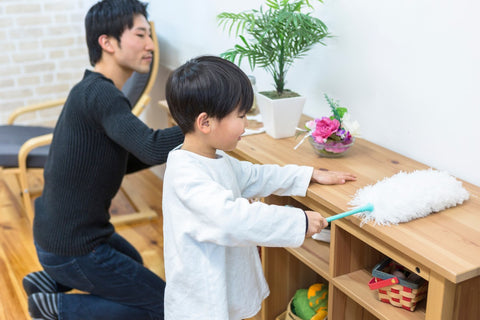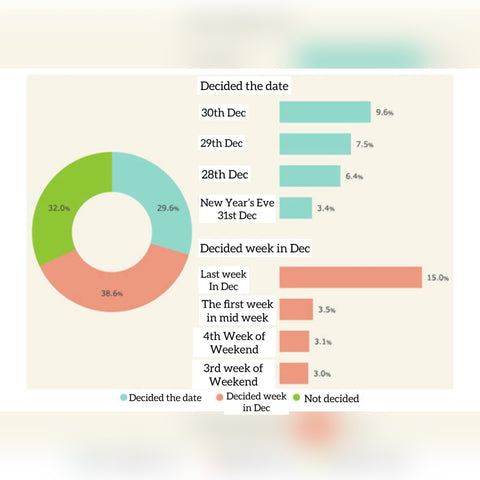In the UK, ’Spring Cleaning’ – when you thoroughly declutter and tidy your house - is traditionally done in the springtime (March-April). But did you know that it is done in December in Japan? This ‘End of Year Cleaning’ is one of the New Year holiday season traditions in Japan!
Why Deep Clean at the end of the year?
It is very common that things get hectic in December because of Christmas and New Year events. It is the same over in Japan too. So why Deep Clean when it’s probably the busiest time of the year?

A lot of Japanese traditions began in the Edo period and this tradition is no exception. Typical old Japanese houses had a hearth in the main room and a charcoal fuelled cook stove in the kitchen. So naturally, the ceiling and the walls gradually get covered with soot over time and people needed to deep clean the house to get rid of it. The sweeping movement when cleaning the soot is called ‘煤払い’ or ‘susu harai’, meaning to sweep or to dust the soot, in Japanese. The word ‘harai’ (sweeping/dusting) can also be translated as ‘purifying’ in some context and therefore, sweeping soot has some meaning to ‘purify’ the whole house!
The 13th of December on the Lunar calendar falls on a day called ‘Ki-shuku-nichi’. It is thought to be a great day to start the preparation for New Year festivities. The ‘sweeping soot’ was done on the 13th of December at Edo Castle during the Edo period. This tradition eventually became the custom amongst common people.

New Year - Shogatsu
The New Year, which is the first 3 days of January, is called ‘Shogatsu’ in Japan and is one of the most important annual events for the Japanese. During the New Year season, it is believed that a Shinto deity named Toshigami comes down. Susu harai or sweeping soot, was one of the most important chores to be done before welcoming this deity and start a new year full of happiness and good health! You would probably do the same to make sure that your house is perfectly clean when you have important guests!
End of year cleaning helps people draw the line between the old year and the new year, or the past and the future. As mentioned above, the New Year is a very important time for Japanese people. In the old days, people believed that it was the time when people rejuvenate their souls. Cleaning the house, top to bottom, purifies the house so that people are ready to welcome the new year with clean, revitalised spirit!
It is well known that Japanese people value cleanliness highly (you might have seen the picture of the Japan teams changing room after finishing their match and Japanese fans tidying up the mess in the stadium at the Football World Cup?) My grandmother used to tell me to keep things tidy and neat because it eventually brings me good luck. Plus, it is simply nice to spend time in a clean and tidy environment!
So, the end of the year cleaning is not just deep cleaning the house but also has cultural and historical reasons.
When exactly do people do the cleaning?

As the pie chart shows above, 42% of people do it either at around the end of December or 31st of December. It is supposed to be done on the 13th of December if you stick with the tradition as it was explained earlier. However, in this modern time where you are busy with everyday life, I guess it may be not easy to do it on the actual day. Why don’t you follow our tradition for a change this year and have a ‘End of Year Cleaning Day’ then welcome New Year’s Day in fresh clean surroundings?
We have some great products to make the cleaning fun such as tenugui which may be used as washcloths, dishcloths, headbands or thin hand towel.
we also have a beautiful pen box and jewellery box to keep your small things tidy and safe.
Are you following us on Facebook and Instagram? We share our new-in or recommended products, Japanese culture, tips on how to use our products etc. Come and join us!
